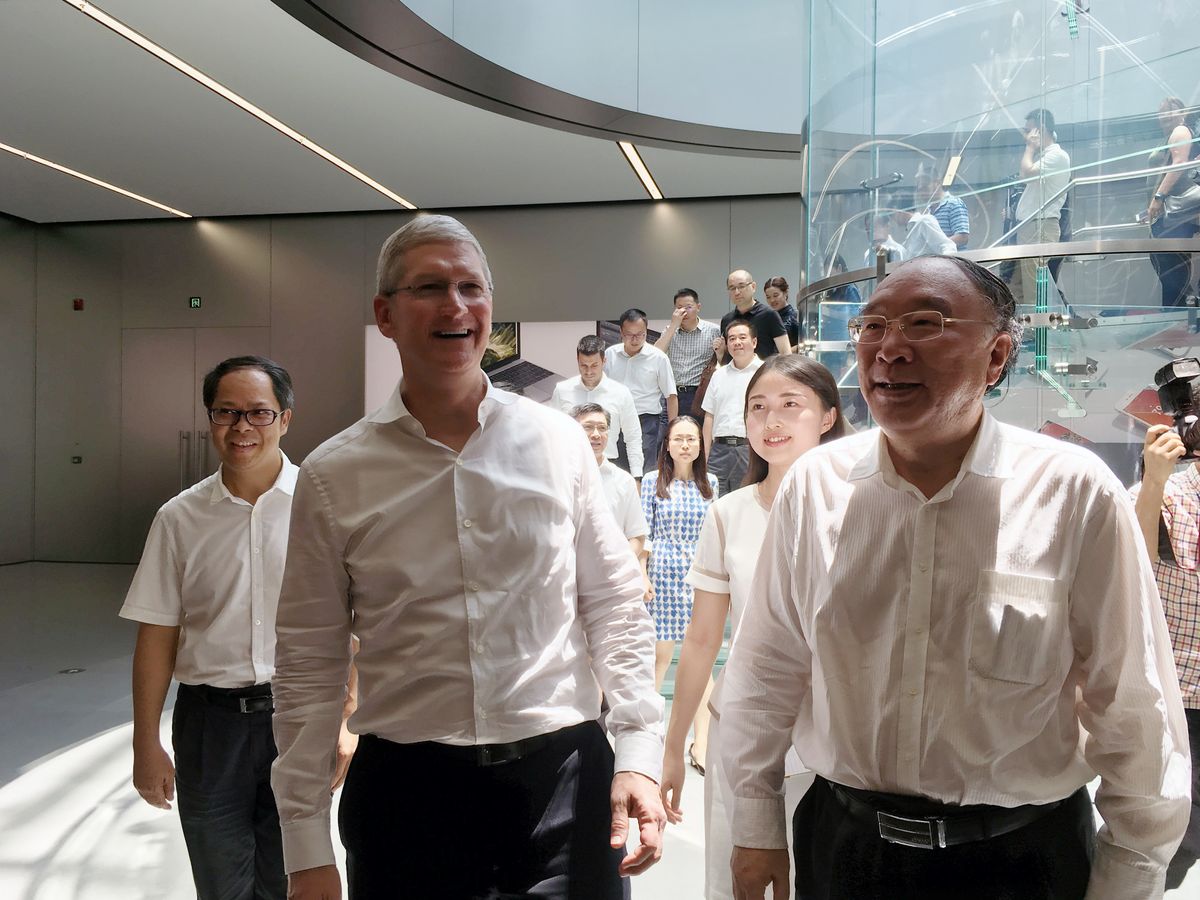China Development Forum Sees Muted American Participation

The Lede: Organizers of the three-day China Development Forum say that while a hundred foreign representatives of various countries have registered for the event, notably few U.S. companies will be in attendance.
What We Know:
- The summit will take place from March 25 to 27. In the first fully in-person China Development Forum since 2019, corporate leaders including Apple’s Tim Cook and Pfizer’s Albert Bourla are scheduled to be physically present as well as Bridgewater Associates founder Ray Dalio, Invesco’s President Martin Flanagan, and Blackstone’s CEO Steve Schwarzman. However, the bulk of the confirmed attendees are not from the US.
- Some American companies are opting to withhold the attendance of higher-ups and sending lower-level executives instead or meeting with individual stakeholders on the sidelines of the event such as a Beijing-based policy research group’s slated meeting with a representative from Tesla.
- Despite the declining sentiment, business and trade ties between the world’s two biggest economies remain substantial. Total merchandise trade between China and the US edged up on the year to around $700 billion in 2022
The Background: Before the pandemic, China had been an attractive consumer market for business. However, the global business sentiment toward China has deteriorated during its strict COVID Zero policies that severely hampered its economy. Foreign companies experienced disruptions in their Chinese operations for months at a time which resulted in global supply chain delays. Lockdowns, pandemic infections, and worker riots contributed to production deficits among some of the biggest names like Apple. Big-name companies like Vanguard Group have already shuttered business in China.
Likely Outcomes:
- While American companies hold back on their representation at major Chinese-hosted trade and economic gatherings, firms originating in non-U.S. and aligned countries may view this as an opportunity to diversify their reach while taking advantage of China’s re-opening to prioritize business in China into the future.
- If the climate of tension between China and the U.S. continues to deteriorate, future such summits will experience a further decline in U.S. attendance, especially if more trade barriers are erected in economic competition. Some American companies have already reorganized important supply chain links and this trend will certainly continue as business in China becomes increasingly difficult to manage. Sentiment will take many years to turn around if they do at all, but other American companies remain optimistic for their specific industries and hope to shrug off the obstacles.
Quotables:
“It is increasingly challenging for companies to navigate the expectations of consumers and stakeholders in China and abroad, and in some cases that may be weighing on decisions about visiting China at this time,” – Sean Stein, Chairman of the American Chamber of Commerce in Shanghai
“I don’t think the Americans are going to sit it out, but they’re probably going to do whatever they can to stay in the background and out of the limelight.” – Francis Bassolino, Managing Partner at Alaris Consultancy in Shanghai
Good Reads:
Tim Cook and Ray Dalio Among Few US Chiefs Attending China Business Summit (Bloomberg)
US businesses shy about attendance at China’s Davos (Financial Times)



